As Wall Street remaps its understanding of the markets, Daniel Keegan, co-head of Global Equities at Citigroup, is leading the way, shepherding his company through wholly novel and unprecedented conditions.
℘℘℘
One of the most influential leaders on Wall Street, Dan Keegan is a third-generation Irish American with roots in west County Meath and Cork on his father’s side, and just outside of Dublin on his mother’s. He is a devout Catholic, a proud member of a large Irish American family, and a life-long supporter of Notre Dame.
Keegan’s father is an alumnus, so too his three brothers, and when the time came for Dan to go to college, his father told him he could go anywhere, but if he wanted it paid for, he should pack his bags for South Bend. He earned his B.A. in American studies, with concentrations in English, history, and government.
Robert Schmuhl, professor of American studies and journalism, taught Keegan as an undergraduate and the two have remained close. He remembers his student’s combination of humor and inquisitiveness.
“Curious, smart, personable, he made a winning impression then, and he continues to do so,” he told Irish America. “Laughter is never far away when he’s around, and each day his Irish good humor adds to the gaiety of this nation and others.”
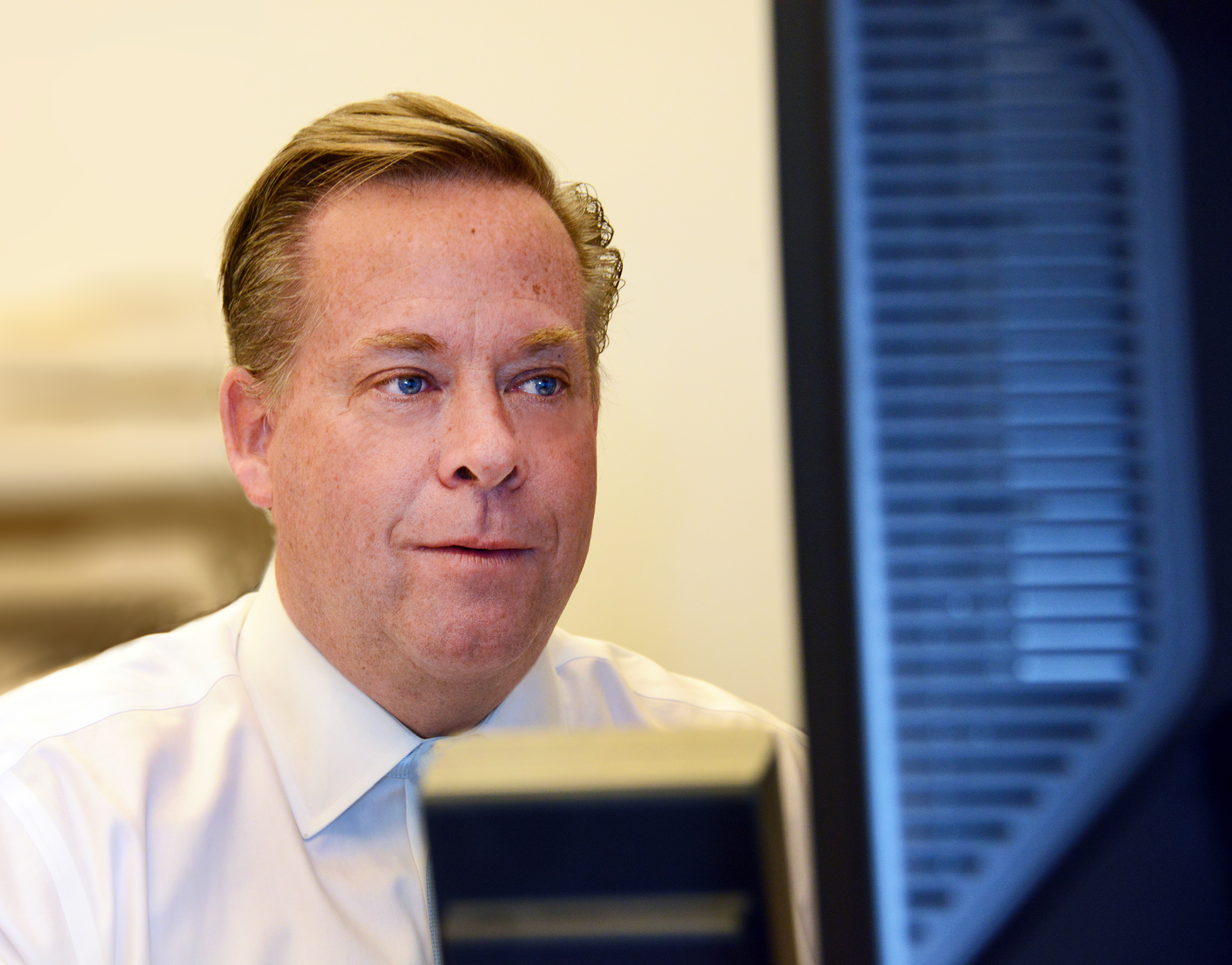
Though Keegan has an abiding interest in history, when he graduated in 1991, he decided to study law, and where better than Notre Dame Law School, the oldest Roman Catholic law school in the nation. His father, a lawyer himself, wasn’t overly enthused at his decision. His advice to Dan was “don’t take notes.” Asked why, his father, he says, told him bluntly, “Others will take better notes, what you really need to learn is how to think.”
To this day, Keegan, now 47, says it was the best advice he ever received (even if he didn’t feel that way at the time). “The idea of thinking about how to think, make arguments and defend one’s position is invaluable,” he says. “You can’t make an argument without understanding the other side and, by definition, understanding the other side implies that you’re listening and are committed to understanding every aspect of the debate.”
After graduating, Keegan worked with his father’s law firm where he gained experience in general legal matters on a variety of topics ranging from personal injury law to family law, but after a year he decided to move on and try something different.
Keegan grew up in Rumson, New Jersey, on the Shore, the middle of five children, and graduated high school in 1987. As a kid, he liked puzzles and was fascinated by his father’s Wall Street friends and their work: “I had always been interested in the markets and how they worked. And, so as not to be disingenuous, I admit it took me a long time to really understand them. It was not native, so I found it akin to a puzzle, to a degree, one that I may never solve, but love working on nonetheless.”
Having been in the industry for 20 years now, Keegan still maintains that analogy to today’s markets. Still, too, his passion is unflinching, and he attributes much of his success to that puzzle-solving drive and hard work: first at Salomon Brothers in 1996 as a research sales assistant in Chicago, then with JPMorgan in San Francisco during the dot com boom, then back to Chicago in 2000, and back again to San Francisco in 2001 after the bubble burst. In 2002, JPMorgan asked him to move to New York to start a business for them in electronic trading. He later moved to Automated Trading Desk, which was acquired by Citi in 2007. He has been there ever since and has “the scar tissue to prove it,” he jokes, having weathered the 2008 financial crisis, the 2010 flash crash (during which the Dow dropped almost 1,000 points in just over half an hour), and countless other minor crises.
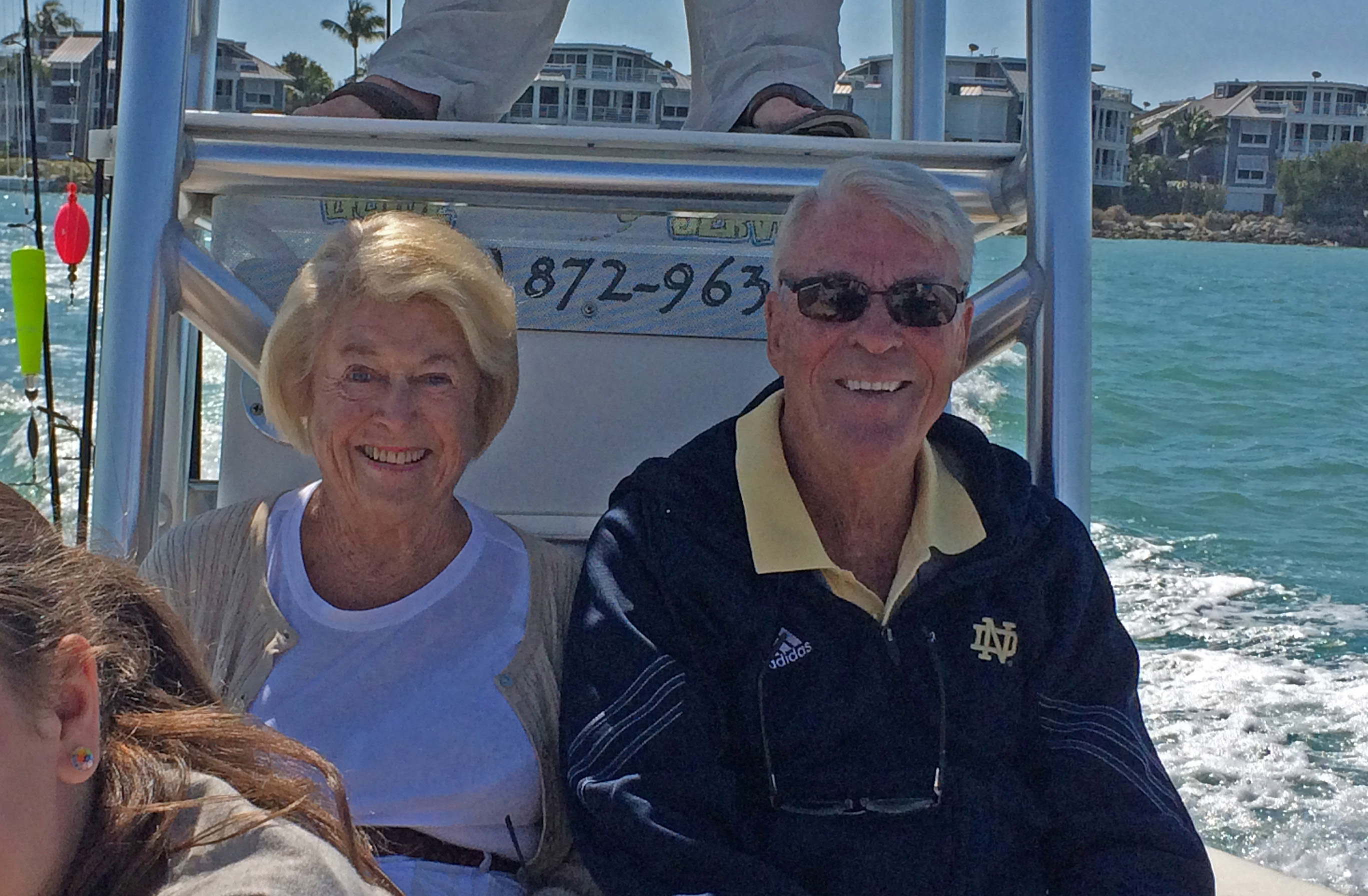
He is analytical and not prone to hyperbole, so when he says today’s markets are unique in historical terms, you believe him: “It’s a fascinating time as global central bank coordination has pushed rates and volatility to unprecedented levels, all the while forcing investors out on the risk curve.”
Because of that, no two days on the street are the same, he says, “and just when you think that you’ve got it figured out, the market serves up a big old piece of humble pie. Rest assured, I have had my fair share of said pie over the years.”
That humility and an early passion for sports has left him with some natural leadership qualities including team building and making decisions under pressure that have helped his career.
For him, it is now more about analyzing the game and its ancillary aspects to the simple dichotomy of winning or losing: “I love sports not just for the sport itself but for all the other things that come with it – competition, confidence, failure, the need for resiliency, and, of course, teamwork.”
Basketball was his early passion, but, in his own words, “a slow first step and shaky jump shot” led to an abrupt end to his career on the court. Nonetheless, his passion for sports continues unabated.
These days, Keegan, who bears a striking resemblance to Brian Kelly, Notre Dame’s legendary football coach, has switched his focus to golf, and he loves to golf in Ireland. His favorite place to play is Ballybunion Golf Club, in County Kerry. One of the most beautiful courses in the world with spectacular views of the ocean and grassy dunes, the old links course is also one of the most challenging.
And Keegan loves a challenge, be it on the golf course or on Wall Street. “It is a very special feeling when you can bring a team together and that team collectively can accomplish something its members may have initially thought unachievable.”
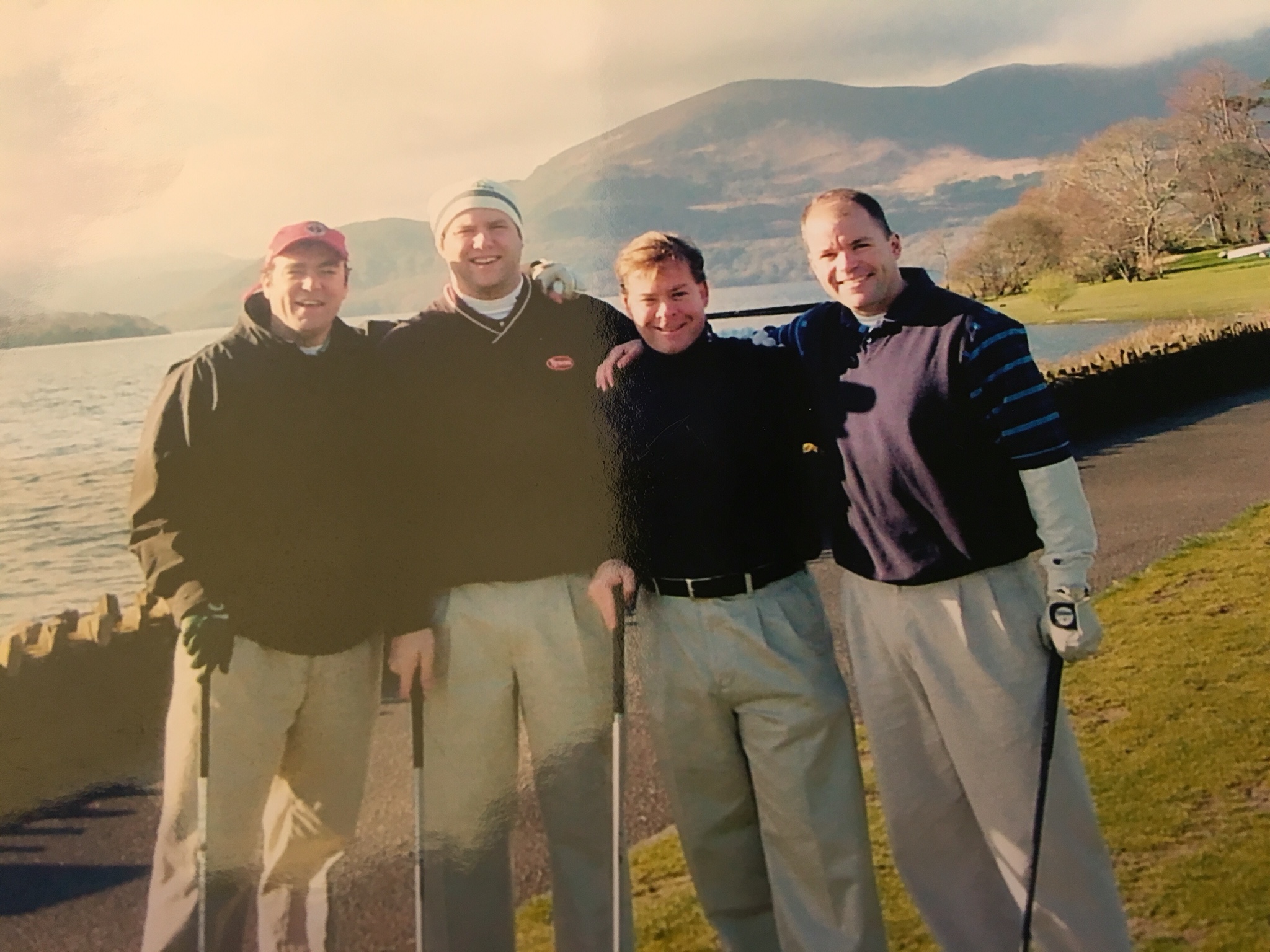
Citigroup is one of the world’s largest financial conglomerates and the global equities division that Keegan oversees with his co-head, Murray Roos, is a huge part of the business with 1,000 employees.
The market never sleeps, and this means that Keegan’s days are long, too. He is up at 5:30 a.m. and in the office by 6:30 if he’s not at a breakfast or traveling. At nights, after family time, he works until about midnight. He doesn’t mind it though. According to him, “very rarely does it feel like work.”
Keegan met his wife, Elizabeth, at Notre Dame, where they dated in their senior year. They reunited in the late ’90s, married in 2000, and now have four children – a son, Danny (15), and three daughters, Rosemary (“Roey,” 13), Margaret (“Meg,” 11), and Katherine (10). It is clear in listening to him that his wife and kids take precedence over all else, a vestige of how he remembers his own upbringing (and parents in particular).
“As frustrating as I probably was to my parents, and as strict as I might have perceived them to be in certain instances, they never quit. They never gave up on me,” he says. “I think that is the most important thing in parenting. While they never hesitated in holding me accountable for the mistakes I made, they never turned away from me either; everything was perceived as a teaching moment.”
But when it comes to kids and parenting, there’s always time for fun, especially if there’s a history or life-lesson involved. Fitting for a man involved in the cash business, Keegan loves Hamilton, the biographical musical about Alexander Hamilton, father of the national banking system and founder of the First Bank of the United States. He has been to see the show several times and it’s also a big hit with his kids.
It’s important to him that his children are exposed to the arts and different cultures, and he recently took the family on a trip to China, which he says was not only educational, but also character-building. He has also taken them to Ireland.
For his father’s 65th birthday in 2000, Keegan and his siblings surprised him by joining the celebration in Ireland. It was Dan’s first time in the country and he loved it. Since, he has gone back several times to play golf with friends. Most recently, he took his family to Dublin in 2012 for the Notre Dame v. Navy football game. It was his children’s first time in Ireland, and his third child, Meg, looking around, turned to Keegan and said, “Dad, I can see why this is where you’re from!” Keegan, who couldn’t pretend to be anything but Irish, was incredulous and almost offended, knowing his Hibernian features all too well.
“What does that mean?”
“No, I mean everyone’s the same!”
True to form, Keegan, convinced no offense was intended, acquiesced and laughed. “You’re right. We all kind of look the same.”
However true it may be with respect to Irish looks, it’s anything but on the trading floor, where Keegan distinguishes himself through measured consideration of issues, decisive execution, and, of course, his Irish good humor.
The following is edited for clarity and length.
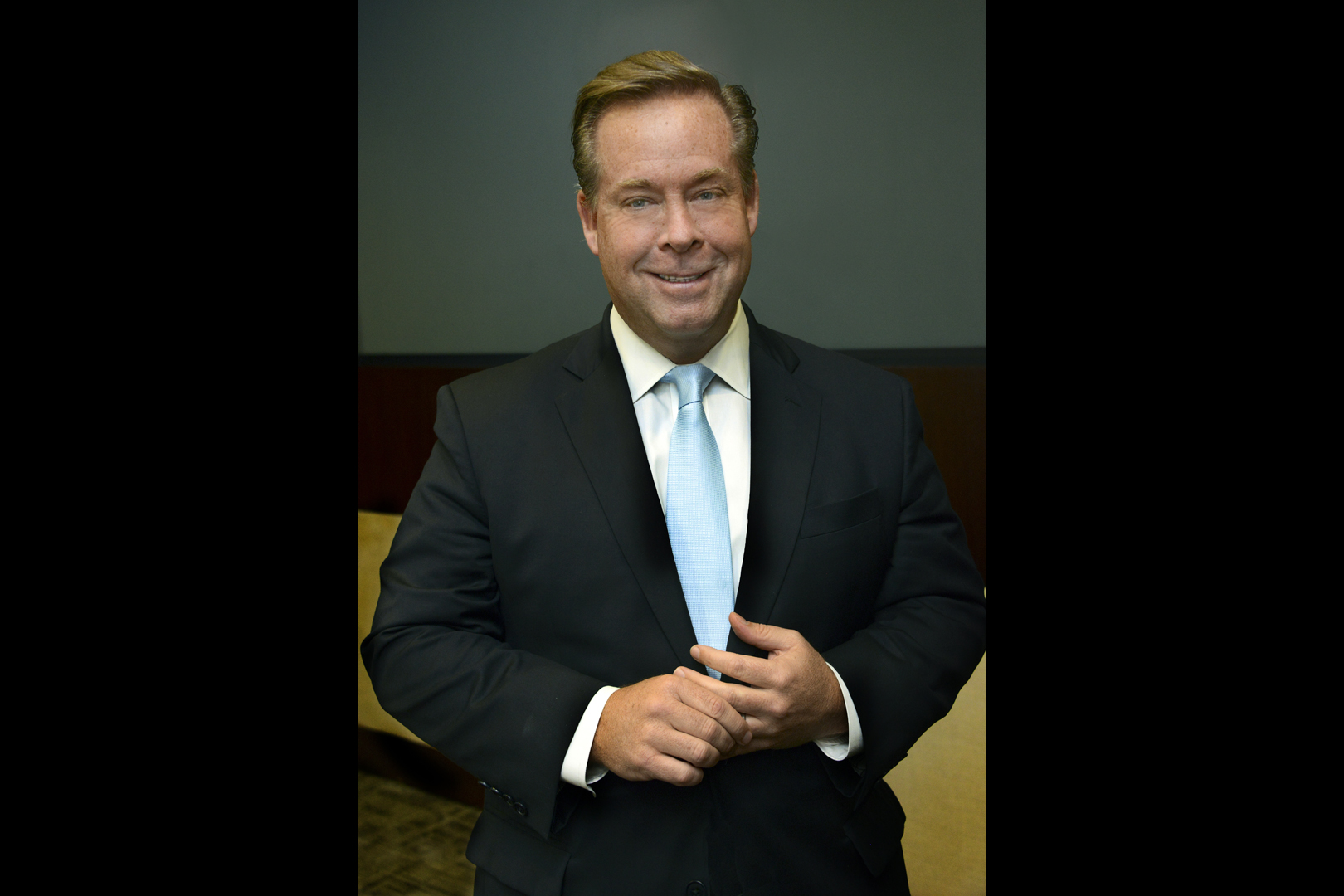
What is your assessment of the current financial climate?
In many ways, we find ourselves in unchartered territory. Quantitative easing around the world has created distortion in financial assets. The equity markets, for example, are approaching all time highs as ultra low rates have forced investors out on the risk curve. While investors remain relatively sanguine about the current set-up, it won’t take much in terms of a change in investor sentiment to introduce a far more volatile environment.
What does that mean for you in this role?
The macro environment is challenging, which, when coupled with some of the cyclical and secular challenges specific to our business, makes for a difficult operating environment. That being said, our business is focused around clients, namely understanding their needs, anticipating what comes next, and ensuring that we are delivering per their want. As a firm, we are quite unique in our global footprint, increasingly a competitive advantage as service provider capacity comes out of the system. Coupled with a commitment from senior management to invest back against the business, I feel very optimistic about what we can achieve on behalf of our clients over the next several years.
How do you and your co-head break up the responsibilities?
The co-head structure is new to me but something that I have taken to very quickly. My co-head Murray Roos is a great guy and very talented to boot. Other than the fact that he is younger, better looking and smarter (maybe!), we operate as equals. Having a partner to discuss ideas and challenge assumptions with is very valuable.
In terms of the structure itself, we came to the conclusion early on that if this was to work, both of us needed to sign up to do the entire job. As such, we are each jointly and severably liable for the globe and every aspect of the business. Communication, as such, needs to be seamless, something that we focus on everyday.
What is your decision-making process?
While deliberate in thought, I tend to be decisive when it is time to act and I try to never look back. Exercising sound judgment is a key aspect of the job and many of the decisions made revolve around people where the human element is often on full display. As such, people decisions in particular require an elevated level of transparency such that the entire team understands the core thought process around it, with the want being to move forward. Sometimes no decision is a decision, but when it is time to make a decision, you have to make it.
Now, in the context of a co-head structure, there is no decision I make in isolation, but once it’s made there is no looking back. Finally, in the context of decision-making, you can’t be afraid to make mistakes; it is an inevitability, everybody makes mistakes. The key is, once mistakes are identified, to rectify them as promptly as possible.
What is your mentorship philosophy towards your employees?
The assets in our business go up and down the elevator everyday. Accordingly, investing in our people is of paramount importance. Citi, in particular, I think is very strong in this regard, providing an array of development opportunities that zero in on product knowledge, leadership seminars, on-line training and the like. Moreover, within the business, we provide mentors for new employees that persist long beyond the first few years.
Culture too plays a critical role. Creating an environment where people feel comfortable asking questions and/or challenging the norm is an equally important part of developing our people. The more you can get people to engage, the more we can learn from each other while advancing both the individual and the business along the way.
How do you build the team in order to maintain that culture?
I play a very active role in both recruiting and hiring. I want naturally inquisitive people. I want people who are not afraid to take risks. I want people who hold themselves more accountable than they would otherwise be held and I want people who genuinely want to be around other people and believe more in the value of the team than they do in themselves.
On the flip-side, what I don’t want are people who read their own press clippings or who think themselves better than somebody else, whether it be their peer, the bathroom attendant, or the security guard at the front desk. We all work for the same firm. We all have jobs to do. Treating everyone with respect and appreciating the role that they play is a major part of building a winning culture. It does not mean that we don’t hold everyone accountable; we do. But the manner in which you do it matters.
How has the industry changed post-crash?
The financial crisis was painful in many, many ways and as an industry, we have to be honest with ourselves in terms of the role that we played.
Nonetheless, if there is a silver lining to be found, it lies in a heightened awareness of the responsibility that we have to our clients and the broader public at large. Every morning when I arrive, our mission statement is prominently displayed on my desktop (no different than any other employee) and what it speaks to is responsible finance, the need to think first and foremost about our clients, and the obligations that we have to them and each other. You can automate a lot of things away, but you can never automate the way that relationship works. The relationship is ultimately the thing upon which trust is formed and trust, in this industry, is everything.
The ultimate litmus test for me centers on my kids – whether I would feel comfortable introducing them into the industry. As it stands today, that answer is unequivocally yes. For all of the pain caused, I am proud to tell people what I do for a living and the value we are delivering to society at large.
What would you like to see more of in the industry?
The industry has changed a great deal post the crisis and I would like to see us promote those changes while speaking more to the role we play in society and the opportunities a career in our industry can provide – the role you can play in helping others.
Citi does so much good for cities, towns and municipalities. It is very charitable organization and, in serving clients, plays a prominent role in how our society functions.
Should we do more? Yes. Can we do more? Yes. Should we hold ourselves responsible for doing more? Absolutely. But I would like to see us trying to promote the benefits of what comes from having a career in financial services, the impact you can have – whether it is a broker servicing a widow or an institutional salesperson servicing a pension fund that manages money for teachers and unions, whether it is an investment banker servicing a corporate client who is trying to restructure a business that has failed, or whether it is the consumer bank where you are helping consumers around debt forgiveness. We need to make sure we are promoting that specifically in the context of the industry, so that people outside of it know the real value Wall Street creates.
Tell me about Notre Dame. What is your relationship with the school like today?
Notre Dame is a special place. It is a Catholic University that is recognized the world over for leading the discussion on a range of society’s most pressing issues. The faculty and administration are second to none, the facilities are amazing and the student population is quite unique. Yet Notre Dame is more than that. Notre Dame is a place where all students are challenged to look beyond themselves, to question their place in society and how they can give back.
Having spent seven years at Notre Dame, with the good fortune too of having met my wife while there, Notre Dame will forever carry a special place in my heart.
How important was your Catholicism to your upbringing?
I am very proud to say that I am a Catholic. I went to Catholic grammar school, high school, college, and law school, so religion has always been a big part of my life and shaped my belief system in many ways. For me, it provides perspective and has taught me to focus less on myself and made me more focused on others.
At Notre Dame, every dorm has a chapel in it, so irrespective of whether you are Catholic or not, the sense of being part of something that is bigger than you – which is what I think religion speaks to – is very, very powerful and should drive how it is we live our lives.
Do you think there is anything you have particularly inherited from your parents?
My parents are great. They have taught me much of what I now know. Leading by example, they both work very hard, yet never take themselves too seriously. They are not afraid to laugh at themselves, but never will they laugh at others. They are both exceedingly good people who have provided me great role models to emulate along the way.
From a heritage perspective, they taught me how much our ancestors suffered to give us the opportunities that we now have, for the courage of their conviction to make the move.
They worked super hard and as a result of that we had a really nice upbringing. That work ethic and making sure that you don’t take shortcuts is something that stuck with me.
How do you interact with your own children about their connection to Ireland and their Irish American ancestry?
Well, we took them there. You can tell all the stories you want, but there is no substitute for seeing it first hand, learning the history, and coming to appreciate the sacrifices those before you made in giving the opportunities they now have. In particular, touring a replica of the type of ship that transported their ancestors was eye-opening. Ireland has such a rich history, and its unique relationship with America will provide them continued opportunity to understand their heritage in the context of who they are and from where they came. As is the beauty of youth, they are only getting started.
How do you address the work-life balance?
Life is all about making choices, but striking the “right” balance between work and everything else is not easy. Prioritizing what is most important in your life and managing your time efficiently are key determinants in striking the right balance.
I love the people with whom I work; I believe in the firm. So, in and of itself, that provides me a great pleasure, but nothing trumps the pleasure that I get from being with my family. For now, just about everything else needs to take a backseat.
What is the most important value for you to teach your children and how do you do it?
Like all parents, we want our kids to work hard, have fun, take chances, and not be afraid to fail. Most importantly, we want them to treat everyone the way they would like to be treated. Admittedly that is easier said than done, and the mistakes that they make are often very much on display, requiring a more immediate response or analysis of where they have fallen short.
The world in which they are growing up in is quite different from the one I knew as a child. The external pressures that they feel are quite pronounced, the stakes seemingly greater. Accordingly, we try to engage our kids in a dialogue, in some ways to act as an outlet for them to share their challenges. Does it work? Only sometimes, but ensuring that they know there is somewhere to go with their problems is important.
In terms of rules, there are many and the consequences for breaking them are swift. However, taking responsibility for their mistakes is critical. Just as they fail, so do we as parents, but so long as we all understand that and try everyday to get better and learn from our mistakes, we are moving in the right direction.
Thank you. ♦

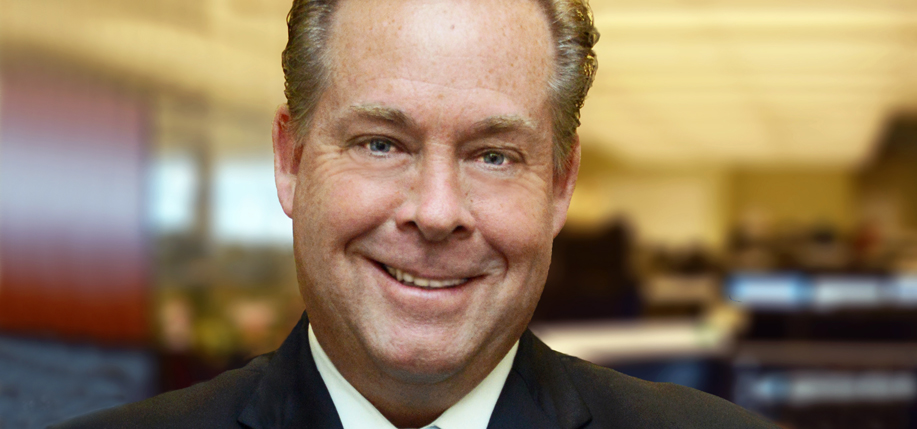
Geez, did he really deserve this much space? It’s boring. He mentions defeat but not victory. Oh, well.